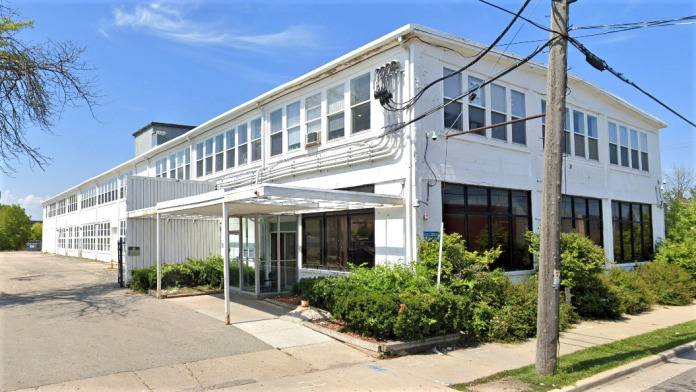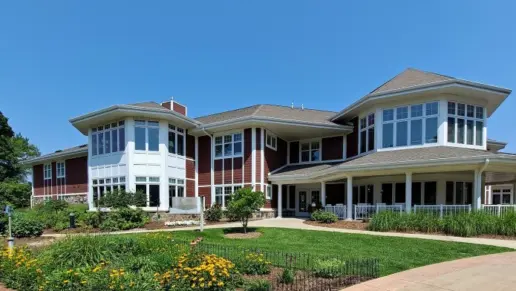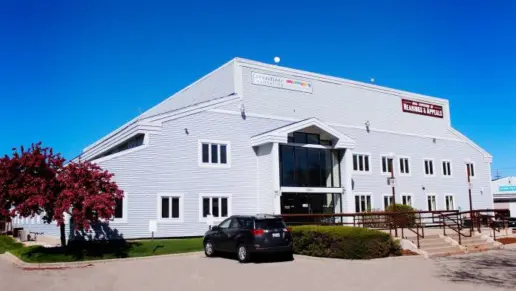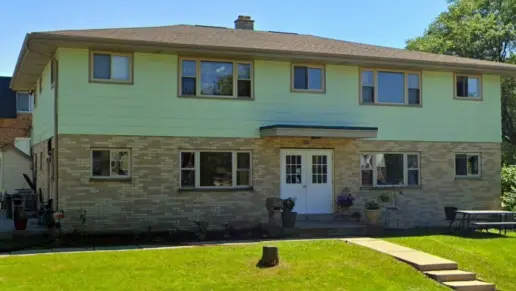Even though it is a small clinic, the staff is great and knows how to optimize their resources. Remember that nothing worth having is handed on a silver tray. They are considerate of us patients and show you to learn from your mistakes
About River Shore Comprehensive Treatment
Specialty rehab programs at River Shore Comprehensive Treatment include tailored care focusing on women's specific needs and experiences and gender-specific addiction treatment addressing unique challenges faced by men.
River Shore Comprehensive Treatment has received accreditations from CARF.
Latest Reviews
Gallery

Location
Accepted Insurance
Other Forms of Payment
Medicaid is a state based program that helps lower-income individuals and families pay for healthcare. Medicaid covers addiction treatment so those enrolled can use their coverage to pay for rehab. When a program accepts Medicaid the client often pays very little or nothing out of their own pocket.
Private insurance refers to any kind of healthcare coverage that isn't from the state or federal government. This includes individual and family plans offered by an employer or purchased from the Insurance Marketplace. Every plan will have different requirements and out of pocket costs so be sure to get the full details before you start treatment.
Self-pay involves paying for treatment out of your own pocket. You can use savings or credit, get a personal loan, or receive help from family and friends to fund your treatment. If you don't have insurance or your insurance plan doesn't cover a specific program, self-pay can help ensure you still get the care you need.
Financial aid can take many forms. Centers may have grants or scholarships available to clients who meet eligibility requirements. Programs that receive SAMHSA grants may have financial aid available for those who need treatment as well. Grants and scholarships can help you pai for treatment without having to repay.
Addiction Treatments
Levels of Care
Treatments
The goal of treatment for alcoholism is abstinence. Those with poor social support, poor motivation, or psychiatric disorders tend to relapse within a few years of treatment. For these people, success is measured by longer periods of abstinence, reduced use of alcohol, better health, and improved social functioning. Recovery and Maintenance are usually based on 12 step programs and AA meetings.
The goal of drug rehab in Wisconsin is to address drug addiction as a complex issue that involves physical, mental, and relational aspects. During rehab, treatment focuses on each of these areas and gives you the tools you need to achieve and maintain sobriety.
Opioid rehabs specialize in supporting those recovering from opioid addiction. They treat those suffering from addiction to illegal opioids like heroin, as well as prescription drugs like oxycodone. These centers typically combine both physical as well as mental and emotional support to help stop addiction. Physical support often includes medical detox and subsequent medical support (including medication), and mental support includes in-depth therapy to address the underlying causes of addiction.
Substance rehabs focus on helping individuals recover from substance abuse, including alcohol and drug addiction (both illegal and prescription drugs). They often include the opportunity to engage in both individual as well as group therapy.
Programs


Clinical Services
The experience of group therapy includes the participation of numerous patients. In most cases, group therapy sessions will be led by one counselor, however, in the event that there is a larger group of individuals participating, more counselors might be involved. Like individual therapy, group therapy works to help individuals acknowledge and process the behavioral and emotional effects that have added to their opioid addiction. It is highly uncommon for an addiction to develop for no reason, as issues like stress, societal pressure, history of trauma, mood disorders, low self-esteem, etc. often serve as underlying causes of addiction. Group therapy offers up an environment where individuals can feel comfortable discussing issues such as these, as well as other topics related to recovery. Group therapy is often effective because of the talent of the therapist, as well as the participation of the individuals.
Individual therapy is a method of care that includes working with a counselor in a one-on-one setting. This type of therapy helps patients begin recovering from an addiction to opioids like heroin, prescription pain pills, or morphine. Some of the benefits of individual therapy can include developing new perspectives regarding the potential underlying causes of addiction, addressing past issues (such as trauma) that have added to an opioid addiction and creating healthy coping skills, among others.
Amenities
-
Private Setting
Accreditations

The Commission on Accreditation of Rehabilitation Facilities (CARF) is a non-profit organization that specifically accredits rehab organizations. Founded in 1966, CARF's, mission is to help service providers like rehab facilities maintain high standards of care.
CARF Accreditation: Yes
Contact Information
3707 North Richards street
Milwaukee, WI 53212



